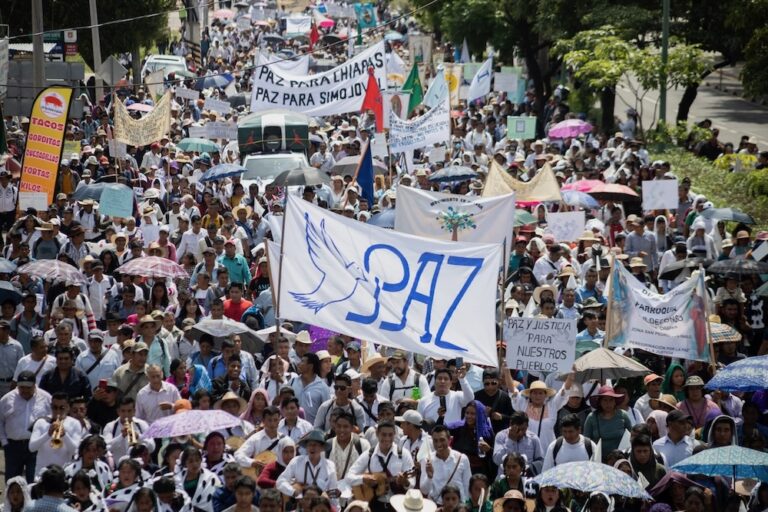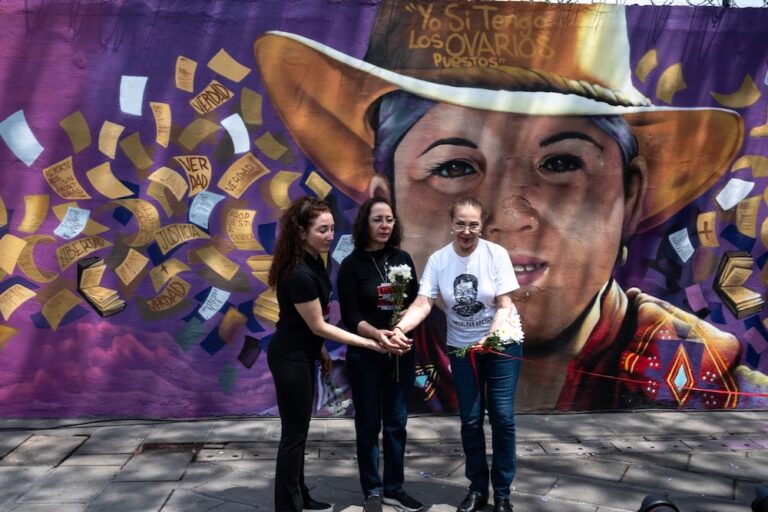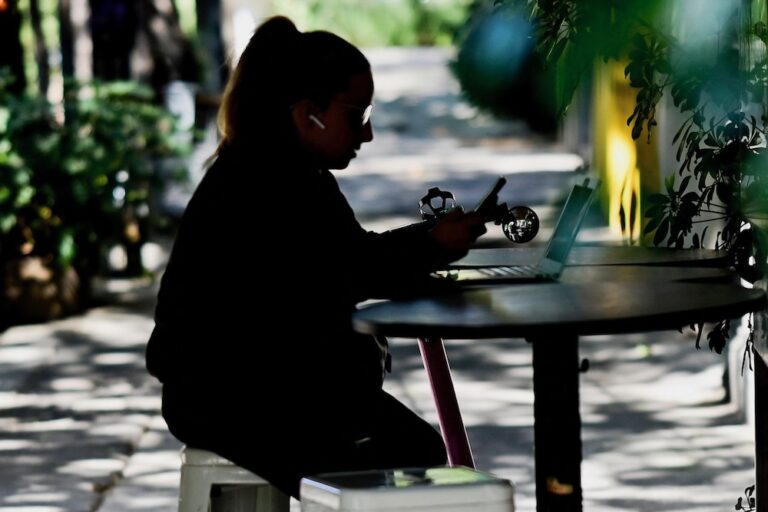(CPJ/IFEX) – The following is a 13 November 2008 CPJ press release: MEXICO: Crime reporter shot to death in Ciudad Juárez New York, November 13, 2008 – Veteran Mexican crime reporter Armando Rodríguez was shot to death this morning while in his car in the border city of Ciudad Juárez. The Committee to Protect Journalists […]
(CPJ/IFEX) – The following is a 13 November 2008 CPJ press release:
MEXICO: Crime reporter shot to death in Ciudad Juárez
New York, November 13, 2008 – Veteran Mexican crime reporter Armando Rodríguez was shot to death this morning while in his car in the border city of Ciudad Juárez. The Committee to Protect Journalists condemned Rodríguez’s killing and called on authorities to conduct a prompt and thorough investigation.
An unidentified assailant shot Rodríguez, 40, a reporter for the local daily “El Diario”, at least eight times with a 9mm weapon, according to Mexican news reports and CPJ interviews. Rodríguez was sitting in a company-owned Nissan sedan parked inside his garage at about 8 a.m. when he was shot, local authorities told CPJ. His young daughter, Ximena, who was in the car at the time of the attack, was uninjured. According to Jaime Torres Valadez, the local mayor’s spokesman, the reporter was pronounced dead at the scene.
“We mourn the death of Armando Rodríguez and offer our deepest condolences to friends and family,” said Carlos Lauría, CPJ’s senior program coordinator for the Americas. “The unprecedented wave of violence against the Mexican press must be halted immediately. We urge state and federal authorities to promptly investigate Rodríguez’s slaying and bring those responsible to justice. Mexico needs to break the cycle of impunity in crimes against journalists.”
The Mexican Congress is considering legislation that would make crimes against free expression a federal offense, a step backed by President Felipe Calderón. “Journalists who cover crime and drug trafficking continue to be killed,” Lauría said. “Mexican authorities should make protection of the media a priority by promoting legislation that will better safeguard the constitutional right of all Mexican citizens to express themselves freely.”
Alejandro Pariente, spokesman for the deputy state prosecutor, said authorities have recovered evidence from the scene. Pariente told CPJ that investigators have not identified a motive as yet but are looking into Rodríguez’s journalism as a possibility.
Pedro Torres, deputy editor of “El Diario”, said Rodríguez had received a threatening text message in February telling him to “tone it down.” Rocío Gallegos, news director at the daily, told CPJ she asked Rodríguez if he wanted to change his beat, but the reporter insisted on continuing to cover crime. For safety reasons, Torres said, “El Diario” does not conduct in-depth investigations into organized crime or drug trafficking.
Local journalists told CPJ they believed Rodríguez had been targeted for his work, though they could not pinpoint a specific story that would have triggered the killing. Carlos Huerta Múñoz, a crime reporter for the Ciudad Juárez-based daily “El Norte”, said he and Rodríguez had covered the murder of two local police officers on Wednesday. Huerta said Rodríguez had not mentioned any threats. Colleagues told CPJ that Rodríguez was a well-known and respected reporter who covered crime for more than a decade.
Ciudad Juárez, a border city across from El Paso, Texas, has been hit by a wave of drug-related violence. More than 1,000 people have been killed in drug-related crimes in Ciudad Juárez this year, according to international and local press reports. Local reporters said police officers, doctors, lawyers and drug kingpins have been executed this year. On November 6, unidentified individuals left a decapitated head at the city’s Journalists’ Square, local news reports said. Police have not made an identification.
Powerful drug cartels and escalating violence associated with criminal groups have made Mexico one of the deadliest countries for reporters worldwide. Since 2000, 24 journalists – including Rodríguez – have been killed, at least seven in direct reprisal for their work. In addition, seven journalists have disappeared since 2005.


